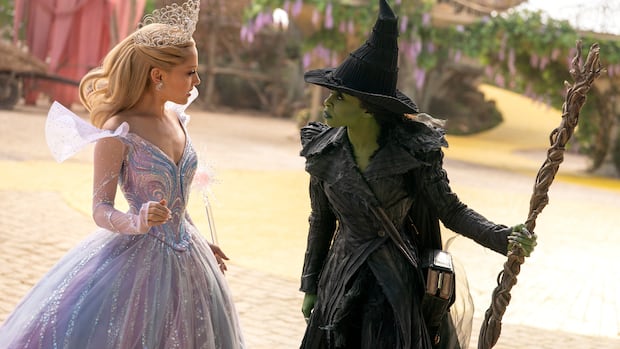Listen to this article
Estimated 4 minutes
The audio version of this article is generated by text-to-speech, a technology based on artificial intelligence.
The production company behind controversial AI "actor" Tilly Norwood has announced plans with History Channel in the Netherlands for a new AI-assisted historical travel series.
Straten van Toen (Streets of the Past) is a planned 10-part series commissioned by Hearst Networks, a partial owner of History, that will see historian and author Corjan Mol travel to different Dutch sights, which will then be made to appear as they did during various historical periods via generative artificial intelligence tools.
Particle6, a U.K.-based AI production company founded by Eline Van der Velden, will use archival material such as paintings, engravings and photographs to generate the scenes Mol will interact with.
Example scenarios given were Amsterdam's popular shopping and commercial street Rokin, as it hosted the creation of the world’s first stock exchange in the 17th century, and Utrecht’s historic Janskerkhof square — the site of resistance organizing during the Second World War.
This is not the first AI-involved historical re-enactment program to hit the airwaves; earlier this year, Hearst announced the documentary series Killer Kings, which it promoted as “the first documentary TV series to air using fully AI-generated imagery.”
And in what Variety deemed “a deliberately provocative move,” the U.K.’s Channel 4 broadcast a documentary entirely hosted by an AI presenter last month.
Speaking at this year’s International Documentary Film Festival Amsterdam, Portuguese filmmaker Susana de Sousa Dias said the incursion of generative AI into the world of documentary threatened its very existence.
“There is a risk here that not only can spectators believe fake archival footage, but that people will stop believing anything,” she said. “In both cases, our regime of truth is completely shaken.”
Particle6 gained widespread notoriety earlier this year after it announced the release of synthetic performer Tilly Norwood, an AI-generated creation that studios could theoretically utilize in their productions.
In a statement addressing widespread concerns, Van der Velden argued that AI isn’t a replacement for actors. Instead, she characterized it as simply “a new tool” akin to computer-generated imagery (CGI), allowing creators to solve problems in new ways.
“AI offers another way to imagine and build stories,” Van der Velden wrote. “I’m an actor myself, and nothing — certainly not an AI character — can take away the craft or joy of human performance.”
WATCH | How AI-generated 'actor' Tilly Norwood is drawing Hollywood outrage:European AI production company Particle6 says their AI-creation Tilly Norwood has generated a lot of interest, but Hollywood actors including Emily Blunt, Melissa Barrera and Whoopi Goldberg as well as the SAG-AFTRA union have come out against the AI character.Still, the move was widely opposed by acting unions.
In a statement of their own, Hollywood’s main performers' union, SAG-AFTRA, argued the creation of Tilly Norwood “doesn’t solve any ‘problem’ — it creates the problem of using stolen performances to put actors out of work, jeopardizing performer livelihoods and devaluing human artistry.”
The question of how much — and even whether — generative AI should be used in film and television has become an existential question for the industry. Earlier this month, actors Matthew McConaughey and Michael Caine became the latest performers to license their likenesses to a generative AI company.
McConaughey tasked AI-voice generation company ElevenLabs with using AI to create an audio version of his newsletter in Spanish, read in McConaughey’s own voice. And Caine both licensed his voice for use in the company’s ElevenReader text-to-voice app, and cleared it for use in their AI-voice marketplace.
Others in the industry have attempted to push back at AI involvement. Toni Collette, Ralph Ineson and Odessa A’zion are among the actors who have expressed anger at the Tilly Norwood tool — with some suggesting a boycott of talent agencies that use it.
“Hope all actors repped by the agent that does this, drop their a$$,” Scream actor Melissa Barrera wrote on her Instagram story. “How gross, read the room.”











